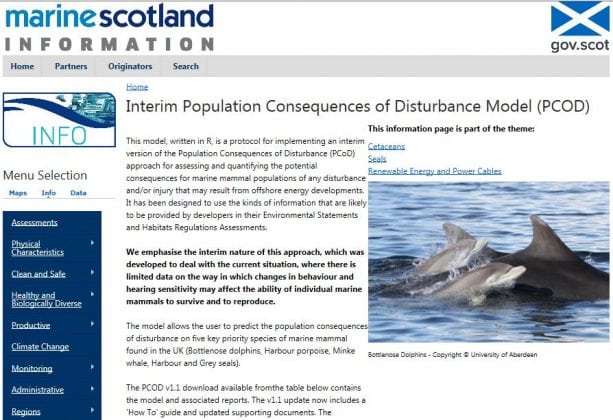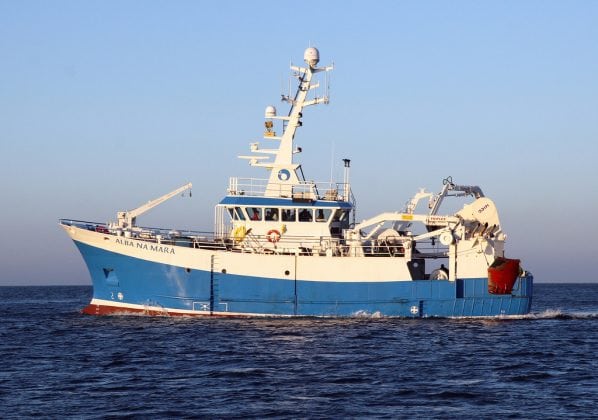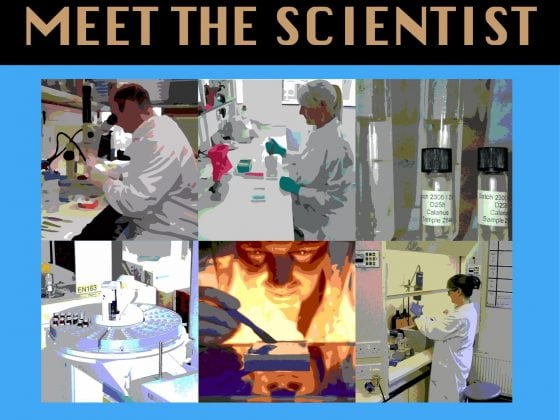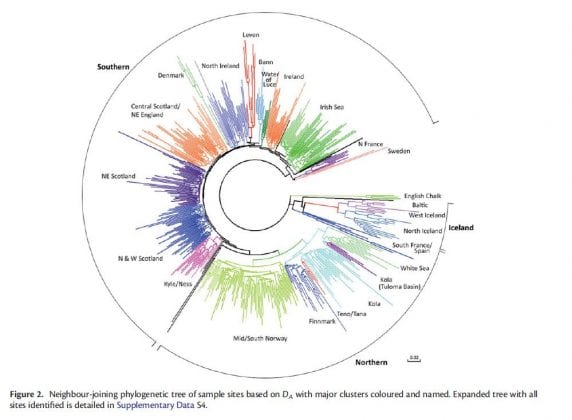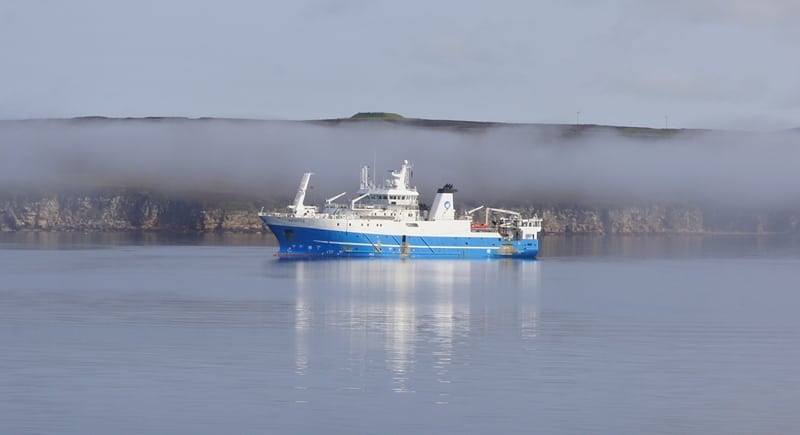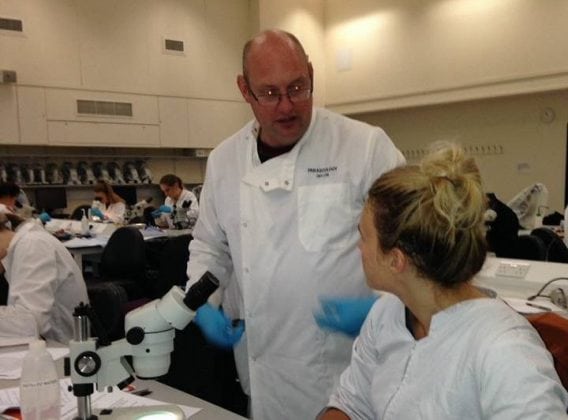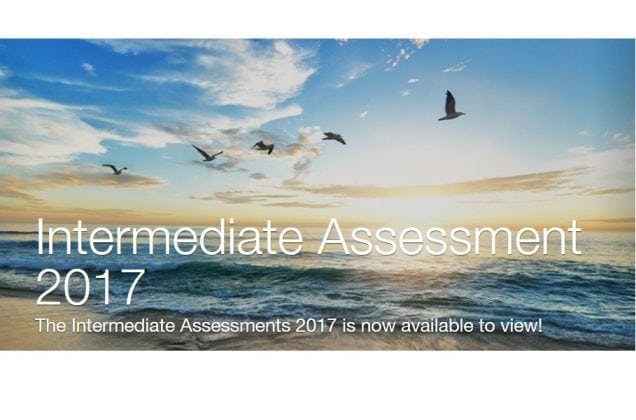Marine
-
Crab and Lobster Fisheries in Scotland: Results of Stock Assessments 2013 – 2015
16th October 2017 by Marine Scotland Communications
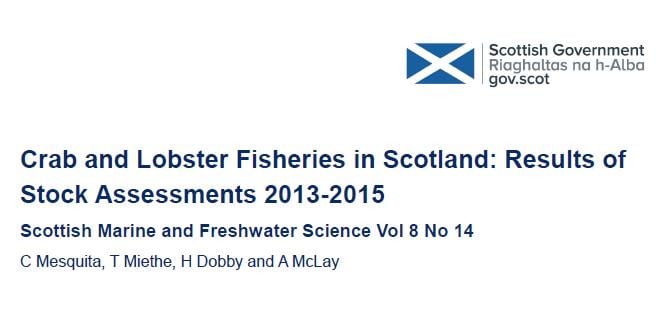
Today, Marine Scotland published the latest in its Scottish Marine & Freshwater Science series – Crab and Lobster Fisheries in Scotland: Results of Stock Assessments 2013 – 2015. Crabs and lobsters are important species for the Scottish fishing industry. Although the total quantity landed is small relative to finfish landings, crab and lobster attain high...
-
Predicting the impact of underwater noise on marine mammals
13th October 2017 by Marine Scotland Communications

Marine mammals, such as seals and dolphins, are sensitive to underwater noise and other disturbances which can affect their ability to forage or communicate. Our understanding of the effects of these pressures on marine mammal, and of how to assess and quantify potential impacts on populations, is rapidly evolving. One tool that can be used...
-
Model Movements
12th October 2017 by Marine Scotland Communications
This morning, Marine Scotland has published a report on approaches for modelling harbour seal movement. This type of information is important because it may be able to help predict the consequences of environmental change, such as the establishment and operation of marine renewable energy, on the distribution and movement of seal populations. The work, undertaken by the...
-
Clyde 2020 – Sampling the sediment
11th October 2017 by Marine Directorate Communications

Duration: 13-17 October 2017 Fishing Gear: Craib corer Day Grab – 0.1m2 Autosieve (0.5mm & 1mm mesh sieves) CTD Objectives: To map spatial distribution of sediment characteristics, infauna composition, pore-water nutrients and organic matter content within the inner Firth of Clyde, Clyde sea lochs and Clyde Estuary. To map the relationship between mean particle grain...
-
Meet our scientists – Dr Carey Fraser
10th October 2017 by Marine Scotland Communications

Who are you and what do you do? I am Carey Fraser. I work 30 hours a week and spend half of my week as Science Operations Programme Manager for Marine Scotland Science, and half on secondment as Head of Professional Development for Science in the Scottish Government. Why is what you do important? Science...
-
The genetic stock identification of European Atlantic salmon
29th September 2017 by Marine Scotland Communications

Marine Scotland scientists, including senior author Dr John Gilbey, Eef Cauweiler and Lee Stradmeyer, have been involved in a recent publication in the ICES Journal of Marine Science. The publication, which is the results of a collaboration between researchers from laboratories in 11 countries from across Europe, provides the most comprehensive geographical coverage for an Atlantic salmon data-set for genetic stock...
-
The Scotia went to CTD to see what she could ADCP
25th September 2017 by Marine Scotland Communications

Duration: 6-16 October 2017 Gear Sea-Bird CTDs (Conductivity, Pressure & Depth), ADCP (Acoustic Doppler Current Profiler) instrumentation and AL-200 frame, water filtering equipment, bacteria sampling and experimental equipment, including bacterial culture equipment with CO2 gas enrichment (HWU), mooring equipment and recovery trawl. Objectives Test the CTD in the Buchan Deep off Peterhead Perform hydrographic sampling...
-
Knowing your parasites – inside and out
20th September 2017 by Marine Scotland Communications

Ensuring Scotland’s marine environment is managed effectively and sustainable is crucial for future generations – and this includes, literally, all creatures great and small. To support this, in September, representatives from Marine Scotland, Aberdeen University and the University of Cape Town hosted a two day MASTS-funded workshop in Aberdeen focussing on “Parasites of Commercially Important Marine Fish Species and...
-
IA2017 – Eutrophication is still a problem in some areas
18th September 2017 by Marine Scotland Communications

Eutrophication is the result of excessive enrichment of water with nutrients. This can cause accelerated growth of algae (phytoplankton) and plants. This may result in an undesirable disturbance to the balance of organisms present and ultimately to a decline in the overall water quality. Eutrophication is not always a local problem. Water masses continuously move...
-
Surveying Scotland’s Priority Marine Features
15th September 2017 by Marine Scotland Communications

Duration: 21 September – 10 October 2017 Gear New drop/lander frame + calibration mesh HD TV system + lights Armoured cable + spare + axle stands Stereo TV system Background and Objectives 1617A will survey the waters around the Small Isles Marine Protected Area (MPA). The primary objective of this survey is to survey monitoring...

